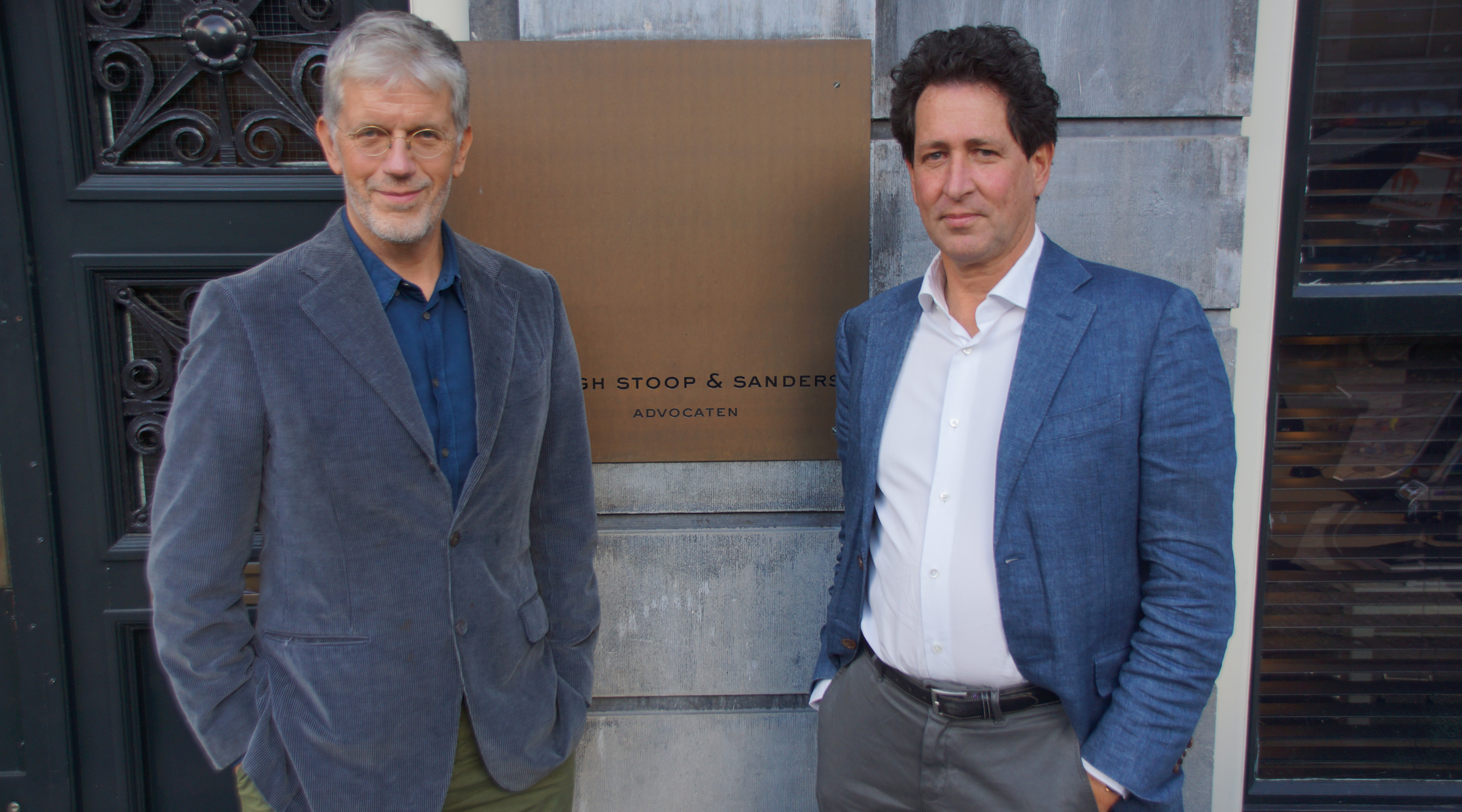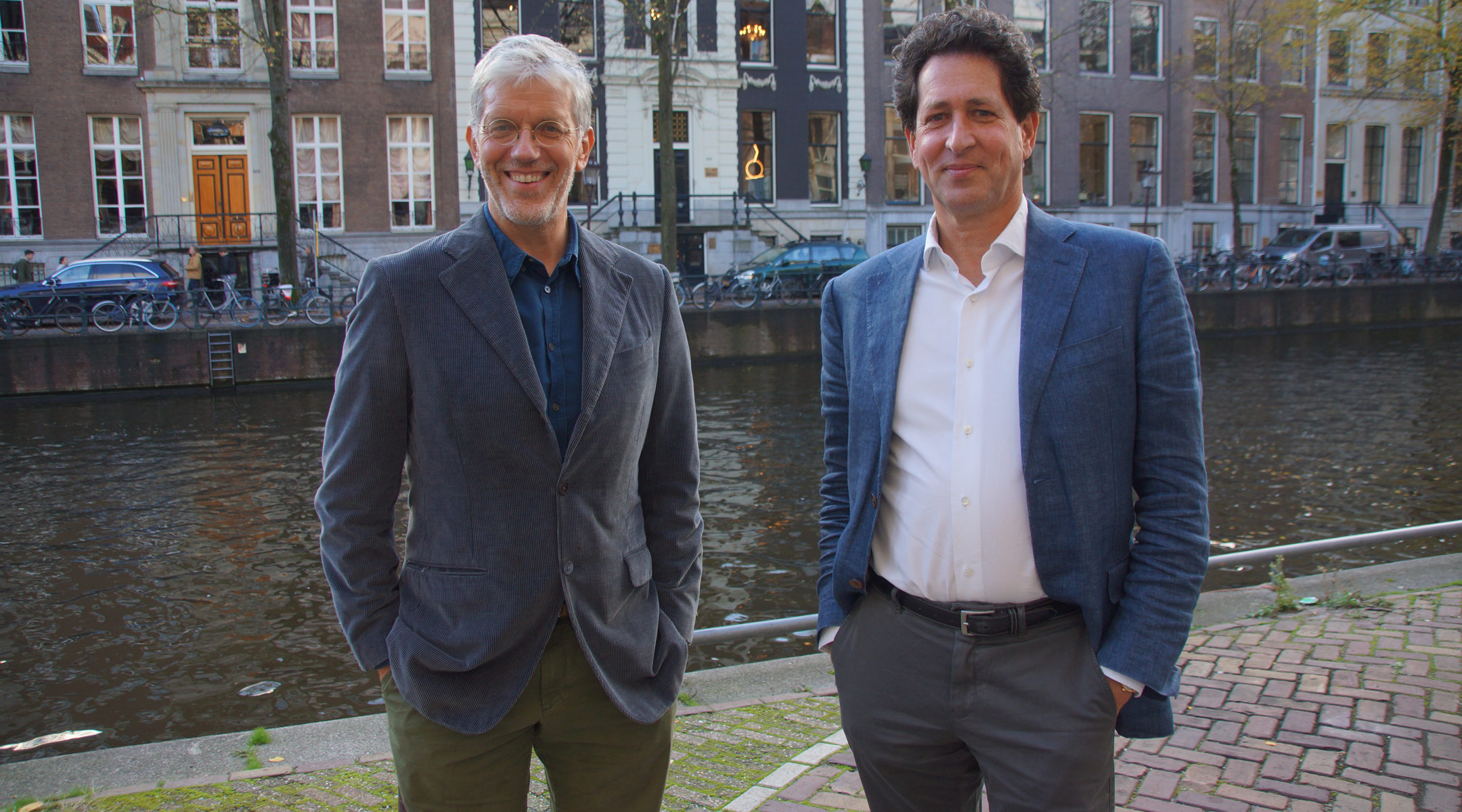After seven years of legal war, the Amsterdam Court of Appeal decided to return the exhibits of an exhibition titled "Crimea – the Golden Island in the Black Sea" to Ukraine. The Ukrainian delegation applauded the decision of the Amsterdam court. Dutch lawyers representing Ukraine's interests did not hide their joy and congratulated each other and Ukraine on the victory.
However, the battle for the "Scythian gold" is not over. The Court of Appeal has rendered its judgment but this is not the final verdict. Four Crimean museums - the Central Museum of Tavrida, the Kerch Historical and Cultural Reserve, the Bakhchisaray Historical and Cultural Reserve and the Tauric Chersonese National Reserve - now have the right to appeal the judgment issued by the Amsterdam Court of Appeal at the Supreme Court of the Netherlands. Russia has already called the judgment completely politicized, saying that exhibits from Crimea should return to Crimea. Therefore, Russian representatives do not hide their intention to appeal the decision. The so-called "Russian Crimean museums" have three months to appeal. While the litigation continues, the collection will be stored in the Netherlands, at the Allard Pierson Museum in Amsterdam, at least until the court of cassation issues its ruling.
How many years can the process take before a final decision is made in this case? Ukrinform asked Dutch lawyers who, together with their Ukrainian colleagues from the Ministry of Justice and the Kyiv-based law firm Sergii Koziakov & Partners, represent Ukraine's interests in the Scythian gold case, how they are preparing for the new trial and the chances of Ukraine winning the case at the Supreme Court of the Netherlands.
THE NETHERLANDS NOT RECOGNIZING THE ANNEXATION OF CRIMEA IS A RELEVANT CIRCUMSTANCE FOR THE COURT
Question: What did the victory at the Amsterdam Court of Appeal mean to you?
Mr. Van den Bergh: The Court of Appeal confirmed that Ukraine has control over its own cultural heritage, based on the Ukrainian Museum Law. We applaud the fact that the court found its way in complex issues of Ukrainian cultural heritage law. The court confirmed what Ukraine has stated from the beginning: that the museum objects belong to the state part of the Museum Fund of Ukraine and should be regarded as an integral part of its cultural identity. As a sovereign nation, Ukraine can reclaim its cultural heritage.
Question: Russia said the judgment by the Court of Appeal was politically motivated. What do you think about this statement by Russia?
Mr. Sanders: The Amsterdam Court of Appeal based its decision on legal positions and grounds.
The fact that the State of the Netherlands does not recognize the annexation of Crimea (as most of the international community) is, of course, a relevant circumstance for the Court's decision. The Court of Appeal held that the treasures originate from Crimea, therefore are also to be considered as Crimean heritage and, therefore, are cultural heritage of Ukraine as it exists since 1991. This is a confirmation that the factual annexation by Russia has not had a legal effect in the Netherlands.

INTERNATIONAL LAW FULLY SUPPORTS UKRAINE'S CLAIM
Question: The District Court of Amsterdam ruled in December 2016 that the exhibits should be returned to Ukraine. Representatives of Crimean museums appealed the court's decision. After that, the proceedings started at the Amsterdam Court of Appeal. How difficult has this case been for you over the past seven years? How are you preparing for the trial at the Supreme Court of the Netherlands?
Mr. Sanders: It was a legal challenge also because the courts had to deal with complex legal issues of Ukrainian law and international law. Moreover, one of the judges in appeal was recused after two requests of the State of Ukraine. We subsequently had to explain the entire case again to the Court of Appeal in its new setting.
The Crimea Museums have indicated that they wish to appeal the matter at the Supreme Court of the Netherlands. At that level, only matters of law (not the facts) are relevant. We expect that the museums will dispute the application of the Ukrainian Museum Law. We, on the other hand, will provide supporting arguments for application of the UNESCO Convention 1970. Both Ukrainian law and international law support the return of the treasures to Ukraine. We will prepare our arguments together with a special counsel to the Supreme Court.
Question: In your opinion, what are the chances of "Russian Crimean museums" at the Supreme Court of the Netherlands? Is it possible that the Supreme Court will rule in their favor? How can this trial proceed in The Hague?
Mr. Van den Bergh: Both the District Court in Amsterdam and the Court of Appeal have confirmed that the treasures concern the national cultural heritage of Ukraine. In this respect, the Museum Law of Ukraine as well as international law fully support Ukraine's claim. We believe that it is difficult for the Crimean Museums to get around this principle and therefore we believe that Ukraine will also prevail at the Supreme Court level.

WHAT CRIMEAN MUSEUMS SAID
Question: What was the position of Crimean museums?
Mr. Van den Bergh: The Crimea Museums claimed that the Autonomous Republic of Crimea partly owned the treasures and that the museums had a right to manage the treasures. They argued that this right of 'operative management' of the museums is stronger than the rights of the State of Ukraine. They also claimed that the Allard Pierson Museum in Amsterdam simply guaranteed to return the treasures to the museums and that this contractual obligation should be performed by the Allard Pierson Museum, regardless of politics.
Question: What was the position of Ukraine?
Mr. Sanders: Ukraine's position was that international law dictates the return of the treasures to the country of origin in the current situation and that the State of Ukraine owns the treasures. Furthermore, it was explained that the Museum law granted the power to the Ministry of Culture of Ukraine to determine how the treasures should be temporarily safeguarded, during the period of the temporary annexation of Crimea.
Question: What was the reaction of Crimean museums to Ukraine's victory?
Mr. Van den Bergh: It was stated that the Crimea Museums are victim of a political situation and that the Crimea Museums may try to attack the judgment before the Supreme Court.

UNIQUE CASE IN MODERN LEGAL HISTORY
Question: Can the "Scythian gold" case be called a precedent? How can this experience affect future inter-museum contacts?
Mr. Sanders: It is definitely important that the Court of Appeal confirmed that a state can reclaim its own cultural heritage if there is a risk of loss of such heritage. It would even be better if the court would have said that this also follows from the UNESCO 1970 Convention. This could support exchange of cultural heritage in inter-museum contacts: if museums know that artefacts can always return to the country of origin, this will help museums and states loaning art.
Question: What was the most difficult thing for you in this case?
Mr. Van den Bergh: The fact is that the case is unique in modern legal history. The UNESCO 1970 treaty that we used to support the claim of Ukraine - next to Ukraine law - was never applied in a case like this. However, we are positive that the treaty is meant to solve cases like this.
HOW RUSSIA TRIED TO EXERT INFLUENCE
Question: The Dutch media reported that Russia is trying to intimidate the lawyers of relatives of those killed in the MH17 tragedy. Did you feel any pressure?
Mr. Sanders: We have never felt intimidated and did not have any signals in this regard.
But we are aware that this case is also a matter of great interest for the Russian Federation and that they are following the case closely.
Question: How did Russia try to influence this case?
Mr. Sanders: We have not seen any direct influence from Russia at the Court of Appeal. But the Russian government has made various public statements. It has said that handing over the treasures to Kyiv would be a political act and it has threatened to stop any further loans of cultural objects (such as art from the Hermitage Museum in St. Petersburg) to Dutch museums. Obviously, the Court has not been influenced by these statements.
Iryna Drabok, The Hague
Photo credit: Iryna Drabok
